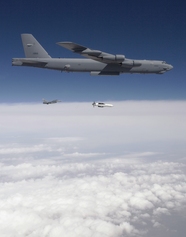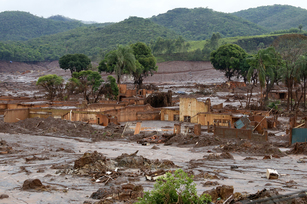|
The US is often referred to as the world’s policeman. It comes with a high cost in people’s lives and money. For the past three years, according to the CIA’s World Factbook, the US has used 4.35% or more of its GDP(Gross Domestic Product) value on the military. This added up to USD$610 billion in 2014, more than any other country.
Supplying other countries with arms, ammunition and the latest in planes, drone, robots, etc., is big business. The multi-billion dollar trade has the US leading in sales, followed by Russia. Of the top ten companies supplying military gear, six are based in the US. Hundreds of thousands of people are employed by what has been called the industrial/military complex. Some peaceniks have even been so bold as to opine that the business of war is too profitable to abandon. Sources: Defense Industry Daily Business Insider Peter C. Peterson Foundation SIPRI Military Expenditure Database
5 Comments
 Concern is mounting among police and defence personnel about the radicalization of young, impressionable people. “Home grown terrorists” has unfortunately become an everyday phrase in the 21st century. "World War III is a guerrilla information war with no division between military and civilian participation." Marshall McLuhan* Nation states have been accused of attacking others in concerted hacking episodes. An incident in 2013 saw the Associated Press hacked. False information told the American public that a bomb had been exploded in the White House, killing the president. The stock market plummeted. The Syrian army claimed credit or blame for that incident. Sneak attacks and information theft can give an enemy state insider information about industrial design or secret political plans. Some new words to add to your vocabulary:
*Marshall McLuhan died in 1980 Sources: Der Spiegel Rand Corp
The emergence of MCR-1 heralds the breach of the last group of antibiotics, polymyxins, by plasmid-mediated resistance. Although currently confined to China, MCR-1 is likely to emulate other global resistance mechanisms such as NDM-1. The Lancet
TV news regularly trots out a health care provider to lecture us on the overuse of antibiotics. Antibiotics have widespread effects and should only be used after careful thought, but many countries do not respect that admonition and if you have the money you can acquire the drugs. The agricultural use of antibiotics to encourage rapid growth is rarely mentioned. It may be that some of the research being done on bacterial phages – viruses that attack bacteria – will fill in the weak spots. That research was pioneered by the Soviets, and phage therapy is used in Georgia, Russia and parts of Poland currently. Sources: Discovery News Scientific American The Lancet |
Barbara McPherson
Blogger, gardener, farmer. Working toward food security and a 30 foot
diet. Addicted to reading. Love this planet, especially my little corner
on Vancouver Island, Canada Archives
October 2016
Categories
All
|






